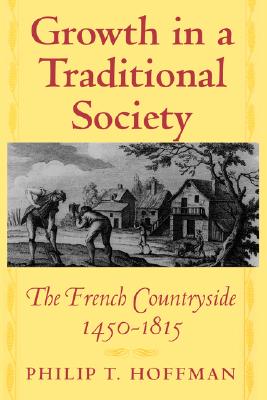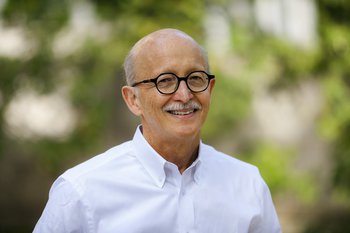

 Princeton University Press
Princeton University Press
Growth in a Traditional Society: The French Countryside, 1450-1815


Key Metrics
- Philip T Hoffman
- Princeton University Press
- Paperback
- 9780691070087
- 9.23 X 6.1 X 0.95 inches
- 1.1 pounds
- Business & Economics > Economic History
- English
 Secure Transaction
Secure TransactionBook Description
Philip Hoffman shatters the widespread myth that traditional agricultural societies in early modern Europe were socially and economically stagnant and ultimately dependent on wide-scale political revolution for their growth. Through a richly detailed historical investigation of the peasant agriculture of ancien-r�gime France, the author uncovers evidence that requires a new understanding of what constituted economic growth in such societies. His arguments rest on a measurement of long-term growth that enables him to analyze the economic, institutional, and political factors that explain its forms and rhythms. In comparing France with England and Germany, Hoffman arrives at fresh answers to some classic questions: Did French agriculture lag behind farming in other countries? If so, did the obstacles in French agriculture lurk within peasant society itself, in the peasants' culture, in their communal property rights, or in the small scale of their farms? Or did the obstacles hide elsewhere, in politics, in the tax system, or in meager opportunities for trade? The author discovers that growth cannot be explained by culture, property rights, or farm size, and argues that the real causes of growth derived from politics and gains from trade. By challenging other widely held beliefs, such as the nature of the commons and the workings of the rural economy, Hoffman offers a new analysis of peasant society and culture, one based on microeconomics and game theory and intended for a wide range of social scientists.
Author Bio
Philip Hoffman is interested in combining economic theory and historical evidence to explain long-term changes in politics, society, and the economy—in particular, economic growth and political development. His current research focuses on several areas. He's exploring why the West grew rich before other parts of the world and why it became a dominant military power.
Another area of interest is the evolution of financial institutions and their effect on economic growth. Specifically, he's trying to understand how mortgage markets developed in France and how they were affected by institutional change. Finally, Hoffman is interested in how states develop the capacity to levy taxes and provide public goods.
Hoffman was president of the Economic History Association in 2013–2014 and co-editor of the Journal of Economic History from 2006 to 2010, and he will become the incoming president of the Social Science History Association in 2019. He has been a visiting professor at the Ecole des Hautes Etudes en Sciences Sociales in France, a visiting researcher at the Paris School of Economics (2011), and a visiting professor at the Hong Kong University of Science and Technology (2013).
In addition to numerous articles, he has written six books and edited two.
He has won the Gyorgy Ranki Biennial Prize from the Economic History Association twice, for Priceless Markets: The Political Economy of Credit in Paris, 1660–1870 (2001) and for Growth in a Traditional Society: The French Countryside, 1450–1815 (1997), which was also awarded the Allan Sharlin Memorial Award from the Social Science History Association. In addition to receiving other prizes for his books and articles, he was a John Simon Guggenheim Fellow in 2001.
- Education
- A.B., Harvard College, 1969;
- M.A., University of California, 1971;
- Ph.D., Yale University, 1979.
- Lecturer in History, Caltech, 1980-81; Instructor, 1981-82; Assistant Professor, 1982-84;
- Associate Professor of History and Social Science, 1984-95;
- Professor, 1995-2003;
- Richard and Barbara Rosenberg Professor of History and Social Science, 2003-08;
- Axline Professor, 2008-. Executive Officer for the Humanities, 1995-2000.
- Research Interests
- Economic History of Europe and the World; Economic Development; Institutional Change
Source: California Institute of Technology Division of The Humanities and Social Sciences
Videos
No Videos
Community reviews
Write a ReviewNo Community reviews